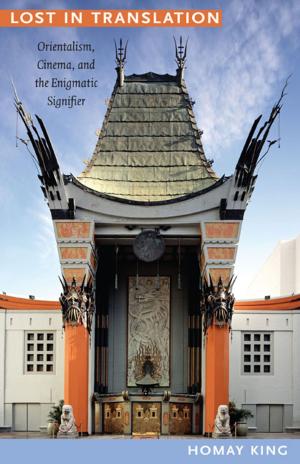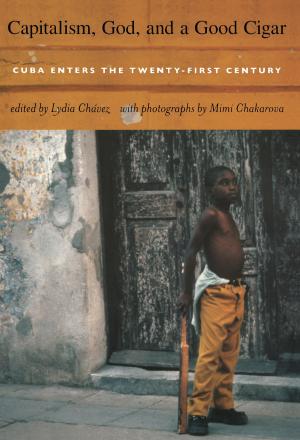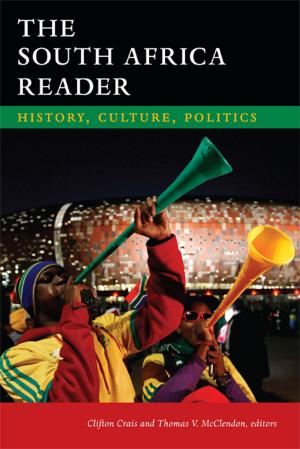The Spectacular City
Violence and Performance in Urban Bolivia
Nonfiction, Social & Cultural Studies, Social Science, Sociology, Urban, Anthropology| Author: | Daniel M. Goldstein, Walter D. Mignolo, Irene Silverblatt, Sonia Saldívar-Hull | ISBN: | 9780822386018 |
| Publisher: | Duke University Press | Publication: | August 18, 2004 |
| Imprint: | Duke University Press Books | Language: | English |
| Author: | Daniel M. Goldstein, Walter D. Mignolo, Irene Silverblatt, Sonia Saldívar-Hull |
| ISBN: | 9780822386018 |
| Publisher: | Duke University Press |
| Publication: | August 18, 2004 |
| Imprint: | Duke University Press Books |
| Language: | English |
Since the Bolivian revolution in 1952, migrants have come to the city of Cochabamba, seeking opportunity and relief from rural poverty. They have settled in barrios on the city’s outskirts only to find that the rights of citizens—basic rights of property and security, especially protection from crime—are not available to them. In this ethnography, Daniel M. Goldstein considers the significance of and similarities between two kinds of spectacles—street festivals and the vigilante lynching of criminals—as they are performed in the Cochabamba barrio of Villa Pagador. By examining folkloric festivals and vigilante violence within the same analytical framework, Goldstein shows how marginalized urban migrants, shut out of the city and neglected by the state, use performance to assert their national belonging and to express their grievances against the inadequacies of the state’s official legal order.
During the period of Goldstein’s fieldwork in Villa Pagador in the mid-1990s, residents attempted to lynch several thieves and attacked the police who tried to intervene. Since that time, there have been hundreds of lynchings in the poor barrios surrounding Cochabamba. Goldstein presents the lynchings of thieves as a form of horrific performance, with elements of critique and political action that echo those of local festivals. He explores the consequences and implications of extralegal violence for human rights and the rule of law in the contemporary Andes. In rich detail, he provides an in-depth look at the development of Villa Pagador and of the larger metropolitan area of Cochabamba, illuminating a contemporary Andean city from both microethnographic and macrohistorical perspectives. Focusing on indigenous peoples’ experiences of urban life and their attempts to manage their sociopolitical status within the broader context of neoliberal capitalism and political decentralization, The Spectacular City highlights the deep connections between performance, law, violence, and the state.
Since the Bolivian revolution in 1952, migrants have come to the city of Cochabamba, seeking opportunity and relief from rural poverty. They have settled in barrios on the city’s outskirts only to find that the rights of citizens—basic rights of property and security, especially protection from crime—are not available to them. In this ethnography, Daniel M. Goldstein considers the significance of and similarities between two kinds of spectacles—street festivals and the vigilante lynching of criminals—as they are performed in the Cochabamba barrio of Villa Pagador. By examining folkloric festivals and vigilante violence within the same analytical framework, Goldstein shows how marginalized urban migrants, shut out of the city and neglected by the state, use performance to assert their national belonging and to express their grievances against the inadequacies of the state’s official legal order.
During the period of Goldstein’s fieldwork in Villa Pagador in the mid-1990s, residents attempted to lynch several thieves and attacked the police who tried to intervene. Since that time, there have been hundreds of lynchings in the poor barrios surrounding Cochabamba. Goldstein presents the lynchings of thieves as a form of horrific performance, with elements of critique and political action that echo those of local festivals. He explores the consequences and implications of extralegal violence for human rights and the rule of law in the contemporary Andes. In rich detail, he provides an in-depth look at the development of Villa Pagador and of the larger metropolitan area of Cochabamba, illuminating a contemporary Andean city from both microethnographic and macrohistorical perspectives. Focusing on indigenous peoples’ experiences of urban life and their attempts to manage their sociopolitical status within the broader context of neoliberal capitalism and political decentralization, The Spectacular City highlights the deep connections between performance, law, violence, and the state.















